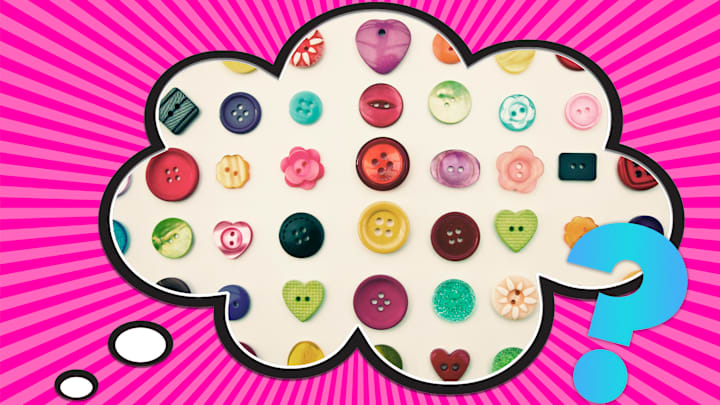For such a small thing, the button has been prolific in terms of vocabulary. The archaic phrase it is in a person’s buttons means “it’s in someone’s capacity to do or achieve something.” To take by the buttons is to accost someone, as if you were grabbing them by their shirt’s buttons. Dash my buttons! is an exclamation of surprise or exasperation. And to have a soul above buttons is to have aspirations beyond what’s expected from lower social classes.
Then there’s cute as a button—a perfect idiom for beings and things that are tiny and totally adorable.
The Meaning and First Uses of Cute as a Button
According to the Oxford English Dictionary (OED), cute as a button means “extremely attractive; adorable, charming.” The phrase was first recorded in 1913, in a review from the Albuquerque (New Mexico) Morning Journal: “Sam Pickard as ‘Little Lord Fauntleroy’ was ‘cute as a button.’” A use in the Arizona Independent Republic from 1938 shows the expression can work equally well as an adjective: “Dress your darling in cute-as-a-button coats with matching hat or cap.”
The expression is probably related to the similar bright as a button, which has been spotted in English since at least the late 1700s. The OED defines this out-of-use idiom as “animated, lively; cheerful; mentally alert, quick-witted.” So a particularly intelligent puppy could be described as bright and cute as a button.
Why a Button?
The word button in the sense of “A small disc or knob attached to a garment (or other fabric item) and used either as a fastener by passing it through a buttonhole or as a decoration” came into English from French around 1350, according to the OED. After that, it acquired many other meanings, from the bud on a plant to a nodule on the skin to slang for the penis (or, if plural, the testicles) and police officers.
The cutesy sense of button—that is, something small and adorable—has been around since at least the late 1600s. As Archibald Lovell wrote in 1696, “This is such a little Button of a World.” Several examples from the OED refer adoringly to a button of a mouth, a button of a face, or, especially, a little button of a nose. (One less-than cutesy meaning of button involves the chin: If a fighter hits another on the button, that’s probably a knockout blow.) By the 1770s, the word had evolved to refer to “A bright, cheeky, or cute person, typically a child” (or, in some areas of the U.S., “a person who lacks experience or skill; a novice”). Cute as a button evolved from there.
If buttons aren’t your thing, you can also say “cute as a bug in a rug” or “cute as a bug’s ear.” And if cuteness isn’t your thing, remember the original meaning of cute, which came from acute, meaning “sharp-witted.” This sense can still be seen when someone responds to a verbal jab with “Don’t get cute.”
Discover More About Common Phrases:
